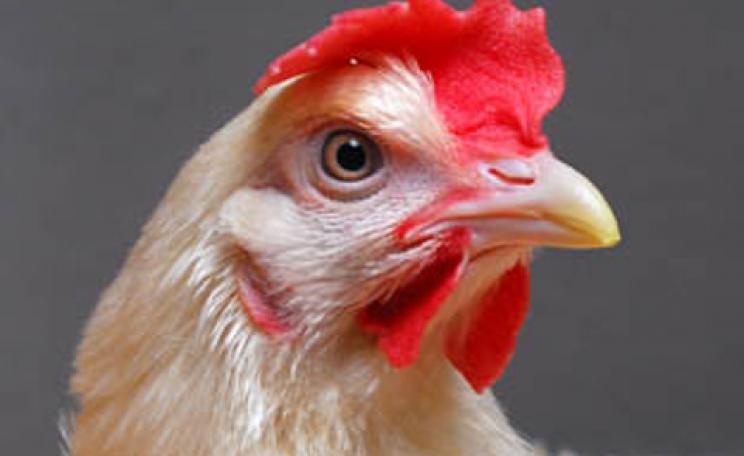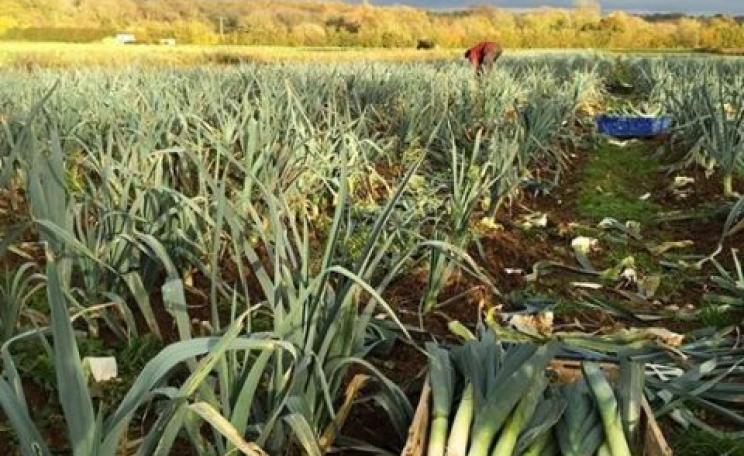The modern industrial farm will import animal feed from all over the world
When you read the word 'eggs' on an ingredient listing, it doesn’t start a red light flashing. And why should it? Most people assume that any eggs used are British. We envisage careful employees, working in a small, clean factory with a daily supply of nice, fresh eggs from nearby happy hens, patiently cracking eggs as required for each new production batch.
If only that was the case. The latest food scare over dioxin-containing eggs illustrates how even apparently straightforward ingredients used in processed foods are often not what they seem. In fact, they are a wriggling can of worms. We now learn that it is standard practice in the food industry to use a product known as liquid pasteurised egg. What is this exactly? You will be forgiven for not being entirely sure because it’s not something you’ll have in your domestic larder.
What happens is that producers of eggs, usually from caged, factory-farmed hens, sell their eggs to a company that shells them and subjects them to a very high heat. This process kills off any potentially harmful food poisoning bacteria, so it may sound like a good thing, but it isn’t, because the heat also destroys several of the vitamins that make eggs so nutritious.
In truth, the real reason for this treatment is not public health, but manufacturers’ convenience and profit. Once pasteurised, the eggs are transformed into a long-life product, like sterilised milk, that can be stored at room temperature for use by them over a period of months, or even years. To be fair to manufacturers, they are under pressure from the food hygiene establishment to use this denatured ingredient, since the regulations governing the use of fresh, raw eggs are so absurdly demanding and strict that they act as a disincentive to use them.
Complex food chains
This telling egg contamination incident sheds light on how common food processing ingredients have become international commodities, bought and sold on a global market. The dioxin-contaminated eggs came from Germany where the hens had been fed oils designed for refining into biofuels. From there, the eggs were sent hundreds of miles to Holland for treatment, then transported by sea and road to two companies in Cornwall and Cardiff, which in turn supplied supermarkets.
When it comes to products contaminated with illegal substances, the further suspect ingredients travel, the more opaque the food chain is and the longer it takes the regulatory authorities, spanning several countries, to track down the problem and coordinate a response. To make matters worse, as smaller food manufacturers have gone to the wall, unable to jump to the supermarket buyer’s tune, more of our food is manufactured in a few centralised factories to ensure economies of scale, and distributed by a handful of powerful retailers.
The irony here is that thanks to our increasingly globalised food chain, although it can take weeks for the authorities to pinpoint the source of a problem and tell us which foods are affected- 3 weeks in the case of eggs- the rogue ingredient can contaminate thousands of products on our shelves in a matter of days. More than likely, we will have eaten them before the regulatory authorities have even woken up to the problem.
Dioxin-contaminated eggs are no different from previous food contamination incidents, such as antibiotic nitrofurans in prawns in 2002 and the infamous Sudan 1 dye, an industrial dye used in floor polish and solvents, which found its way into convenience foods like pasta sauces and ready-meals in 2003. They have in common obscure, illegally-used ingredients that had originated thousands of miles from these shores, all of them known carcinogens.
In the case of dioxin-contaminated egg products, true to form, the Food Standards Agency (FSA) parrots its familiar mantra that they pose 'no food safety risk'. But since when did digesting potent poisons and pollutants become good for us? This kneejerk tendency to sooth our legitimate fears underlines, once again, how the FSA is ludicrously laid-back about health risks posed by both legal and illegal food ingredients with widely-known adverse effects, and cannot be relied on to fight the nation’s public health corner.
Of course, one-off, atypical food contamination incidents can occur anywhere. But if our supermarkets paid food manufacturers a price that would allow them to source their ingredients via a local, regional or at least national supply chain, then the links in that chain would be fewer and more transparent, and any problem could be sooner identified and tackled. Likewise, a more vigilant, pro-active FSA would keep manufacturers on their toes.
Cheaper animal feed
The convoluted, lengthy supply chain is lunatic but only one part of the problem. Food manufacturers are turning their back on British eggs and using lower grade ones from overseas because it enables them to cut their production costs and make some profit on ruthlessly tough supermarket contracts. And for the same reason large-scale industrial pig and poultry units are driven to find the cheapest possible animal feed to lower their production costs.
The biggest food health-scare of the 1990s BSE originated from contaminated animal feed, as did the foot and mouth outbreak in the UK in 2001. Likewise, so did the two most recent dioxin food scares in Belgium in 1999 and Ireland in 2008.
 |
| Illustration of the complexity of modern animal feed supply chains (copyright: Soil Association) |
In the latest scare in Germany, industrial fat added to pig and poultry animal feed as a supplement was found to contain levels of the carcinogenic dioxin 70 times more than safe levels. Dioxins, a byproduct of the chemical industry, are accumulating in the environment and the fatty tissues in our bodies, mainly through the consumption of food where levels have built up in animals and plants. Although they have no immediate effect on our health, prolonged exposure to high levels of dioxins is known to cause cancer and damage to our immune and reproductive systems.
Campaigners have called for greater focus in cutting out dioxin contamination produced by chemical companies but worry in the meantime that our drive for cheap animal feed and food is pushing us towards potential health scares. Pig and poultry farmers in particular are pushed to find ways to minimise the costs of animal feed that make up more than 50 per cent of the cost of production.
'The temptation to find cheaper ways [to feed the animals] is inevitable,' says Compassion in World Farming (CIWF) chief policy advisor Peter Stevenson. 'But this endless attempt to produce cheaper and cheaper food is dangerous and one aspect of our industrial food system that can occasionally blow up in our face.'
Officials in Germany are pushing for stricter controls on the production of animal feeds to prevent contamination but that may not stop future health scares. Stevenson and others argue Europe should be using farm subsidies, currently under review, to promote more local and sustainable agricultural systems not reliant on complex trading networks.
| READ MORE... | |
 |
INTERVIEW Emmanuelle Garcia : Chemical companies want the public to feel helpless and not protest Emmanuelle Schick Garcia is the director of 'The Idiot Cycle', a new film exposing the chemical industry and how it benefits from the contamination it is causing |
 |
INVESTIGATION Dioxin Dorms: Why I Can’t Give Up On New Paltz When PCB transformers exploded in a New York university in 1991, contaminating the campus with dioxins, it set Eric Francis Coppolino on the path to becoming an environmental journalist. |
 |
INVESTIGATION Undercover Investigation: The shocking cost of US 'mega-dairies' With planning permission for Britain's biggest dairy at Nocton about to be re-submitted, The Ecologist travels to California to examine intensive milk production - and finds factory farms, conflict, intimidation, pesticides, pollution and small-scale farmers driven out of business... |
 |
INVESTIGATION Sick as a pig Another strain of MRSA is emerging from the factory farms of Northern Europe, and it is linked to the insatiable demand for cheap meat on our plates. The Ecologist Film Unit investigates |
 |
INTERVIEW Joyce D'Silva: 'Meat should carry a health warning' Eifion Rees talks to the Compassion in World Farming veteran and co-editor of The Meat Crisis - a shocking new book that exposes the range of environmental and health threats facing us if we don't kick our addiction to meat |








